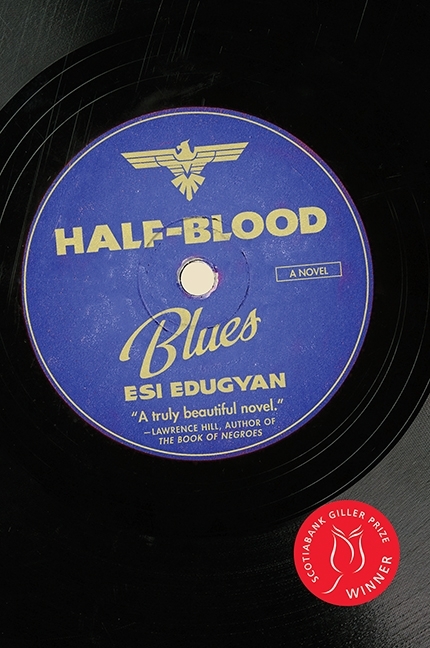Author Esi Edugyan’s eloquent prose pays a worthy homage to the blues, as it is often considered the simplest yet most difficult music to play.
The beginning of World War Two has The Hot Time Swingers on the run. This Blues band, along with their prodigy trumpet player, Hieronymus Falk flee to France to escape racial persecution and to track down the great Louis Armstrong.
Deep but also reader friendly, the story of Half Blood Blues unfolds in large chunks from two time periods.
In the 1940s the band, a mix of black-American and black-German musicians, split their time between playing in smoky bars and recovering from the rot (a hangover).
“The unfair distribution of talent”, as protagonist Sid Griffiths puts it, has him at odds between his ego and his morals. The dialog in Half Blood Blues is sharp, honest, and one would guess, accurate of the dialect heard in the nineteen-forties blues scene:
“I admit it, he got genius, he got genius in spades. Cut him in half, he still worth three of me,” Griffiths laments about his friend and love rival Falk.
Driven by jealously Griffith betrays Falk in a move that changes the course of blues music forever.
Fast forward to the 1990s and Griffith doesn’t play bass anymore but the blues still haunts him.
Reconnecting with his former band mate, the now famous Chip Jones has Griffith revisiting his past where he has long been carrying the burden of guilt.
Griffith and Jones return to Berlin as old men to attend a screening for a documentary about the now legendary Falk. It is at this time that Griffith is forced to either come clean or to carry his guilt to the grave.
Half Blood Blues is a story about the struggle and sadness in lives lived to create something as sweet and soulful as the blues.
Ma Rainy, one of the earliest known American Blues singers is famous for saying: “White folks hear the blues come out, but they don’t know how it got there.” Half Blood Blues is one story about how the blues got there, and it will have you hearing it like you never have before.
Half Blood Blues was the 2011 winner of the Scotia Bank Giller Prize and is published by Harper Collins.

